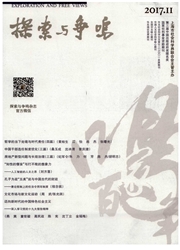

 中文摘要:
中文摘要:
新生代农民工融入城市的过程,亦是在城市重建家园的过程。作为新生代农民工日常生活实践的主要场域,社区是新生代农民工在城市展开家园想象的空间载体。囿于城乡二元户籍制度的约束、职业与身份的双重张力、人际交往内卷化倾向等因素的交互影响,新生代农民工难以形成较为稳定的社区认同感,从而陷入城市筑梦落空的家园恐慌。当前,需要从建构主义的立场出发,以政策转向与身份融合、文化适应与价值共识、就业分化与居住分野、邻里重构与人际和谐、主体回归与家园重建等多维视角,探寻重塑新生代农民工社区认同的可能路径,缓解他们的社区认同危机及由此引发的共同体焦虑,从而增强他们的社区家园感、归属感,将城市社区建设成为新生代农民工的精神家园,并为其提供共同体意义上的本体性安全。
 英文摘要:
英文摘要:
Due to the constraints of urban-rural household registration system, dual tension of career and identity, the involution of interpersonal relationship and so on, it is difficult for the new generation of migrant workers to form a relatively stable community identity, thus falling into the panic of city dream losing. At present, based on the standpoint of constructivism, we need to explore and reshape the possible path of the new generation of migrant workers' community identity from multiple dimensions, such as policy shift and identity fusion, cultural adaptation and value consensus, division?of employment and differentiation?of residence, neighborhood reconstruction and interpersonal harmony, subject regression and homeland reconstruction etc., relieving their community identity crisis and the resuhative community anxiety. We thus can enhance their sense of community homeland and belonging, construct the city community into a spiritual? home.
 同期刊论文项目
同期刊论文项目
 同项目期刊论文
同项目期刊论文
 期刊信息
期刊信息
